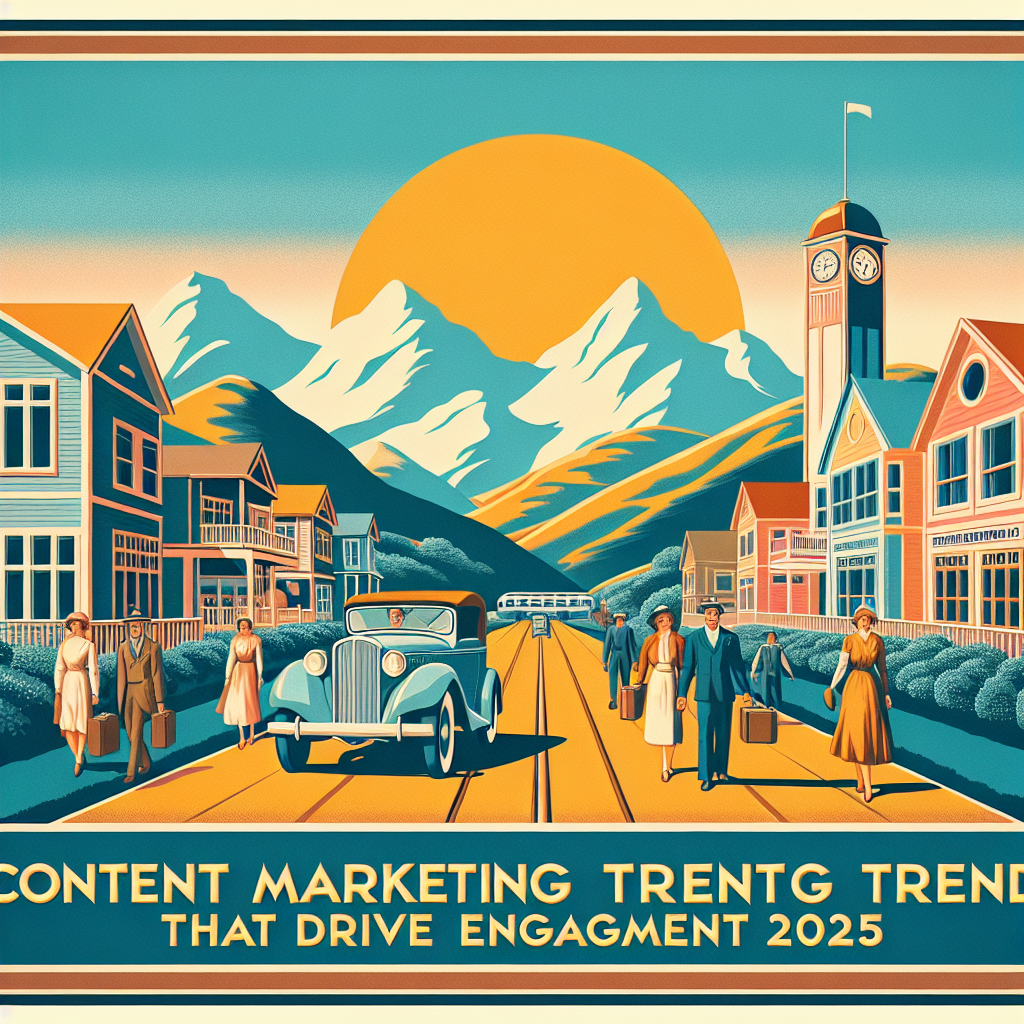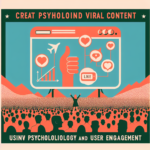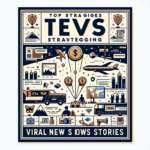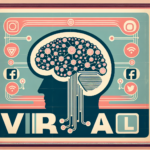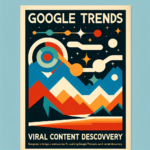Introduction: A Glimpse into the Content Marketing Future
Exciting developments are taking shape on the horizon of content marketing! As we move towards 2025, we’ll be meeting the future head on, moving through a world where technology, creativity, and strategic know-how connect.
Looking to keep your competitive edge? This is your comprehensive guide to the emerging trends and innovative strategies defining the future landscape of content marketing. With that in mind, are you all set to immerse in a captivating exploration of what the future holds – from hyper-personalization and augmented reality to voice search optimization and beyond? Read on!
“The best way to predict the future is to create it.” – Peter Drucker. Keeps this quote in mind as we explore the world of content marketing in 2025.
The Future of Content Marketing 2025: Emerging Trends and Strategies
Personalization at Scale
The future of content marketing in 2025 will be heavily influenced by hyper-personalization. Marketers will leverage advanced data analytics to offer tailored experiences to individual users.
- Behavioral Targeting: Understanding user behavior to make content that addresses specific needs and preferences.
- Artificial Intelligence: Algorithms that predict user interests based on past interactions.
Integration of Augmented Reality (AR)
As technology advances, Augmented Reality (AR) will play a pivotal role in how content is consumed. AR will allow consumers to engage with digital information in their physical world, creating immersive content experiences.
- Interactive Product Displays: Virtual try-on experiences for retail and fashion industries.
- Enhanced Storytelling: Bringing static content to life by integrating AR into storytelling strategies.
Voice Search Optimization
Voice search will dominate how users find content online. With the rise of smart speakers and virtual assistants, content will need to be optimized for voice search to remain accessible.
- Naturally Spoken Phrases: Focus on conversational keywords that users are likely to speak.
- Concise Answers: Structured content that answers common queries promptly.
Video Content Dominance
Video will continue to be a dominant form of content consumption. Long-form, short-form, and live streaming videos will be essential components of any successful content strategy.
- Short-Form Videos: Platforms like TikTok and Instagram Reels will further gain popularity.
- Live Streaming: Real-time engagement with audiences through platforms like Facebook Live and YouTube Live.
The Role of Data Privacy
With increasing concerns about data privacy, future content marketing strategies will emphasize transparency and user control.
- Data Security Measures: Ensuring user data is protected and used responsibly.
- Privacy-First Content: Conforming to privacy laws such as GDPR and CCPA.
Resurgence of Long-Form Content
While short-form content is popular, there’s also a renewed interest in long-form content. Comprehensive articles and in-depth reports are vital for establishing authority in a niche.
Recently, long-form content has seen success in SEO strategies, often ranking well in search engines due to the depth of information provided (Forbes highlights the importance of this).
Utilizing Collaborative Content
Collaborating with influencers, industry experts, and micro-influencers will become more prevalent. Such collaborations can enhance brand credibility and reach new audiences.
- Guest Contributions: Featuring expert insights and opinions to enrich content offerings.
- Partnership Campaigns: Joint marketing efforts that leverage collective audiences.
Envisioning the Digital Marketing Landscape in 2025
Conversational AI and Chatbots Evolution
With more advanced artificial intelligence, the role of chatbots in customer service and engagement will continue to grow, with interactions becoming more human-like.
- Enriched Customer Experience: Chatbots providing highly personalized interaction, addressing customer concerns quickly and accurately.
- Cost-efficient Marketing: Reduced customer service costs and increased efficiency by handling numerous customer interactions simultaneously.
Greater Impact of 5G Technology and IoT
As 5G technology becomes more widespread, marketers will tap into its high-speed, real-time capabilities to transform the way businesses connect with their customers through IoT.
- Real-time Customer Insights: Immediate access to consumer behavior, preferences, and needs, allowing more timely and targeted content strategies.
- Enhanced Consumer Engagement: Ultra-fast 5G data delivery enables immersive experiences, further integrating AR, VR, and interactive content into marketing.
Importance of Ephemeral Content
Ephemeral content (content that only exists for a short window, like Instagram Stories) is gaining immense popularity due to its reduced time commitment and real-time feel. Its fleeting nature incites urgency, prompting users to engage quickly.
- Improved Engagement: Short-lived content pushes audiences to interact promptly.
- Authentic Connection: Casual and timely updates increase brand relatability and foster a closer connection with the audience.
Blockchain Technology in Marketing
Though primarily associated with cryptocurrencies like Bitcoin, blockchain technology’s impact on improving transparency and trust in digital marketing shouldn’t be overlooked.
- Advertising Integrity: Blockchain can verify where all advertisements are placed, ensuring ad budgets are spent on legitimate sites, reaching the intended audiences.
- Consumer Trust: Transparent transactions increase consumer trust, strengthening their relationship with brands.
Growth of Social Commerce
As platforms like Facebook, Instagram, and Pinterest integrate more shopping features, social commerce is poised to drive sales with a seamless shopping experience for consumers.
- Effortless Shopping: Customers can buy products directly within social media platforms, streamlining the purchasing process.
- Increased ROI: The ability to advertise and sell products on the same platform increases marketing efficiency and ROI.
Maturity of AI and Predictive Analytics
AI-powered predictive analytics will play an even larger role, assisting marketers in understanding consumer behavior, optimizing campaigns, and forecasting trends in real-time.
- Optimized Marketing Efforts: Using predictive analytics to adjust marketing strategies based on what’s most likely to happen in the future.
- Better Customer Understanding: AI-powered solutions help understand individual customer paths and predict future actions.
Content Marketing Trends That Drive Engagement in 2025
Interactive Content Formats
Interactive content will become increasingly important as a way to engage users and hold their attention. Formats like polls, quizzes, and interactive infographics invite users to participate, making the content experience more engaging.
- Interactive Quizzes: Encourage users to interact directly with content, providing instant feedback and personalization.
- Immersive Infographics: Transform static data presentations into dynamic, user-directed explorations.
Sustainability and Social Responsibility in Content
In 2025, companies are expected to integrate sustainability and social responsibility into their content strategies. This aligns with growing consumer demand for transparency and responsible business practices.
- Sustainable Practices: Highlighting eco-friendly operations and sustainable products in content.
- Social Good Initiatives: Promoting brand involvement in community service and social causes.
Community-Building Through Content
Creating a sense of community around a brand will be vital. Engaging content that builds a community can foster loyalty and brand advocacy.
- Online Communities: Utilizing platforms like Facebook Groups or Reddit to cultivate a dedicated audience.
- User-Generated Content: Encouraging customers to share their experiences and content related to the brand.
Localization of Content
Localization will help brands reach diverse audiences more effectively. By tailoring content to fit different cultural contexts, brands can enhance engagement and relevance.
- Localized Language: Producing content in the native language of each audience segment.
- Cultural Relevance: Incorporating local traditions and customs into marketing campaigns.
Innovative Use of Blockchain for Content Distribution
Beyond security and transparency, blockchain technology will offer new ways to distribute content in 2025. This will improve content distribution efficiency and traceability.
- Transparent Content Licensing: Ensures ownership rights and fair compensation for content creators.
- Decentralized Platforms: Use blockchain to distribute content without relying on traditional media giants.
Content Inclusivity
Brands will focus more on creating inclusive content that resonates with a broader audience, reflecting diverse voices and perspectives.
- Diverse Representation: Featuring a wide range of backgrounds and experiences in content.
- Accessibility Features: Making online content accessible to individuals with disabilities.
Trends in 2025 Advertising
AI-Driven Ad Creation
Artificial Intelligence will significantly impact ad creation by streamlining and enhancing the process.
- Automated Ad Design: AI tools will generate creative elements, making ads quickly and efficiently.
- Personalized Ad Content: AI capabilities to customize ads for individual user preferences in real-time.
Programmatic Advertising
Programmatic advertising is expected to become more sophisticated, providing marketers with more precise tools for ad placement.
- Real-Time Bidding: Automated bidding processes for ad inventories ensure higher efficiency.
- Audience Targeting: Enhanced demographic and behavioral data allows for more refined targeting.
Ad Formats Emphasizing User Experience
Ad formats in 2025 will prioritize enhancing the user experience without being intrusive.
- Native Ads: Ads that blend seamlessly with the content of the page to reduce disruption.
- Interactive and Engaging: Utilizing formats that encourage interaction, such as polls or mini-games.
Video and Streaming Ads
The dominance of video content will naturally lead to more investment in video and streaming ads.
- Short-Format Video Ads: Engaging videos designed for platforms with a quick consumption cycle like TikTok.
- Ad-Supported Streaming: Increasing integration of ads within streaming services as they monetize content.
Social Media Influencer Integration
Collaborations with social media influencers will infuse authenticity into advertising strategies.
- Micro-Influencers: Greater emphasis on niche influencers with highly engaged audiences.
- Interactive Campaigns: Co-creating content with influencers to blend sponsorship with genuine interaction.
Ad Targeting with Privacy Compliance
Regulatory changes will ensure that targeting strategies remain compliant with privacy laws such as GDPR.
- Privacy-First Strategies: Focused on respecting user preferences while delivering relevant ads.
- Data Security: Enhancing protection around consumer information while using it responsibly.
Blockchain for Ad Verification
Blockchain technology will play a new role in digital ad verification and transparency.
- Anti-Fraud Measures: Preventing ad fraud by enabling transparent verification of ad delivery.
- Transparent Ad Transactions: Providing clarity in the advertising supply chain to build trust.
For more insights on digital marketing trends, you can check out [Forbes](https://www.forbes.com) for regular updates and expert analyses.
Wrapping Up The Future Outlook of Content Marketing and Advertising
As we look ahead to 2025, we can expect to see several significant shifts within content marketing and advertising. Advances in technology such as the integration of AI and AR, along with behavioral-based and voice search optimization, are set to completely revolutionize the way users interact and consume content.
In the face of increasing data privacy concerns, there will be an emphasis on transparency, user control, and responsible data usage. Micro-influencer collaborations, sustainability-centered content, and the establishment of online brand communities are also among the strategic approaches expected to shape the digital marketing landscape.
Further, the blend of blockchain technology with content distribution and advertising, the ever-rising dominance of video content, and predicted improvements in chatbots and predictive analytics signify a more engaging, efficient, and personalized experience for the end user.
Frequently Asked Questions – FAQs
How will AI affect content marketing in 2025?
AI will play a significant role in personalizing the user’s experience, predicting user interests, automating ad designs, and optimizing marketing efforts based on predictive analytics.
How will Augmented Reality (AR) transform content consumption?
AR will enhance how content is consumed, by offering users immersive experiences, interactive product displays, and enhanced storytelling.
What impact will data privacy laws have on content marketing strategies?
Content marketing strategies in the future will have to respect privacy laws, with an emphasis on using data responsibly while providing elements of user control and transparency.
How is video content expected to evolve in 2025?
Video will continue to be a dominant form of content consumption with an increased focus on short formats, live streaming, and integration of ads within streaming services.
What role will influencers play in marketing strategies in the future?
Collaborations with influencers, especially micro-influencers with highly engaged audiences, will become more prevalent for enhancing brand credibility and reaching new audiences.
What is the expected role of blockchain technology in marketing?
Blockchain is predicted to improve transparency in ad transactions, ensure fair compensation for content creators through transparent licensing, prevent ad fraud and provide new ways to distribute content.
